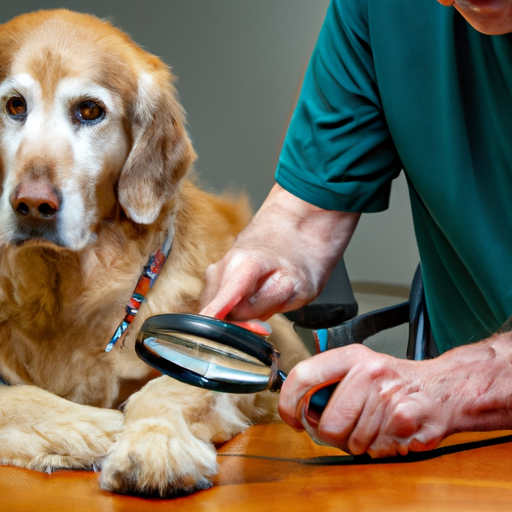Understanding Your Dog’s Paw Health
Your dog’s paws are their foundation – they allow them to run, play, and explore the world. Just like us, dogs can suffer from a variety of issues that can cause swelling in their paws. It’s essential to understand the potential causes, as proper treatment depends on the correct diagnosis.
Swelling might be due to a simple injury, like a sprain or a cut, but it could also indicate more serious issues, including infections or diseases. In some cases, a swollen paw may be a sign of an allergic reaction or a bug bite.
Potential Causes of Swelling
Here are the most common causes of paw swelling:
- Injury: This is the most common cause of paw swelling. Dogs can easily step on sharp objects that can cut or puncture their paws.
- Infection: Bacteria can enter through a wound and cause an infection, leading to redness, swelling, and sometimes pus.
- Allergic reaction: Just like humans, dogs can have allergic reactions to a variety of substances, leading to inflammation.
- Bug bite or sting: A bite or sting can cause localized swelling and discomfort.
- Disease: Certain diseases, such as arthritis, can cause swelling in the paw.
How to Treat a Swollen Paw
The appropriate treatment for a swollen paw depends on the underlying cause.
- For minor injuries, cleaning the wound and applying a bandage may be sufficient.
- If an infection is present, your vet will likely prescribe antibiotics.
- Allergic reactions may require antihistamines and avoidance of the allergen.
- In the case of a bug bite or sting, removal of the stinger and application of a cool compress can help reduce swelling.
- For diseases like arthritis, long-term management strategies including medication and lifestyle changes may be necessary.
Preventive Measures
Prevention is always better than cure. Here are some measures you can take to prevent paw injuries:
- Regularly check your dog’s paws for any signs of injury or infection.
- Keep your dog’s nails trimmed.
- Avoid walking your dog on hot pavement or sharp rocks.
- Use dog boots for protection in harsh weather or rough terrain.
- Ensure your pet’s diet includes all necessary nutrients for good health.
When to Consult a Vet
In the following circumstances, you should consult your vet immediately:
- Severe or persistent swelling
- Obvious pain or distress
- Inability to walk
- Any signs of infection
FAQ
Q: Can I use human medication to treat my dog’s swollen paw?
A: No, some human medications can be harmful to dogs. Always consult your vet before giving your dog any medication.
Q: How can I tell if my dog’s paw is infected?
A: Signs of infection include redness, warmth, pus, and a foul smell.
Q: Can a swollen paw be a sign of a serious disease?
A: Yes, in some cases, a swollen paw can indicate a serious disease like cancer or arthritis.
Q: Should I always take my dog to the vet if their paw is swollen?
A: If the swelling is severe, persistent, or accompanied by other symptoms like difficulty walking, it is best to consult a vet.
Q: Can I prevent my dog’s paw from swelling?
A: While you can’t prevent all causes of paw swelling, regular checks, a healthy diet, and protective measures can reduce the risk.



